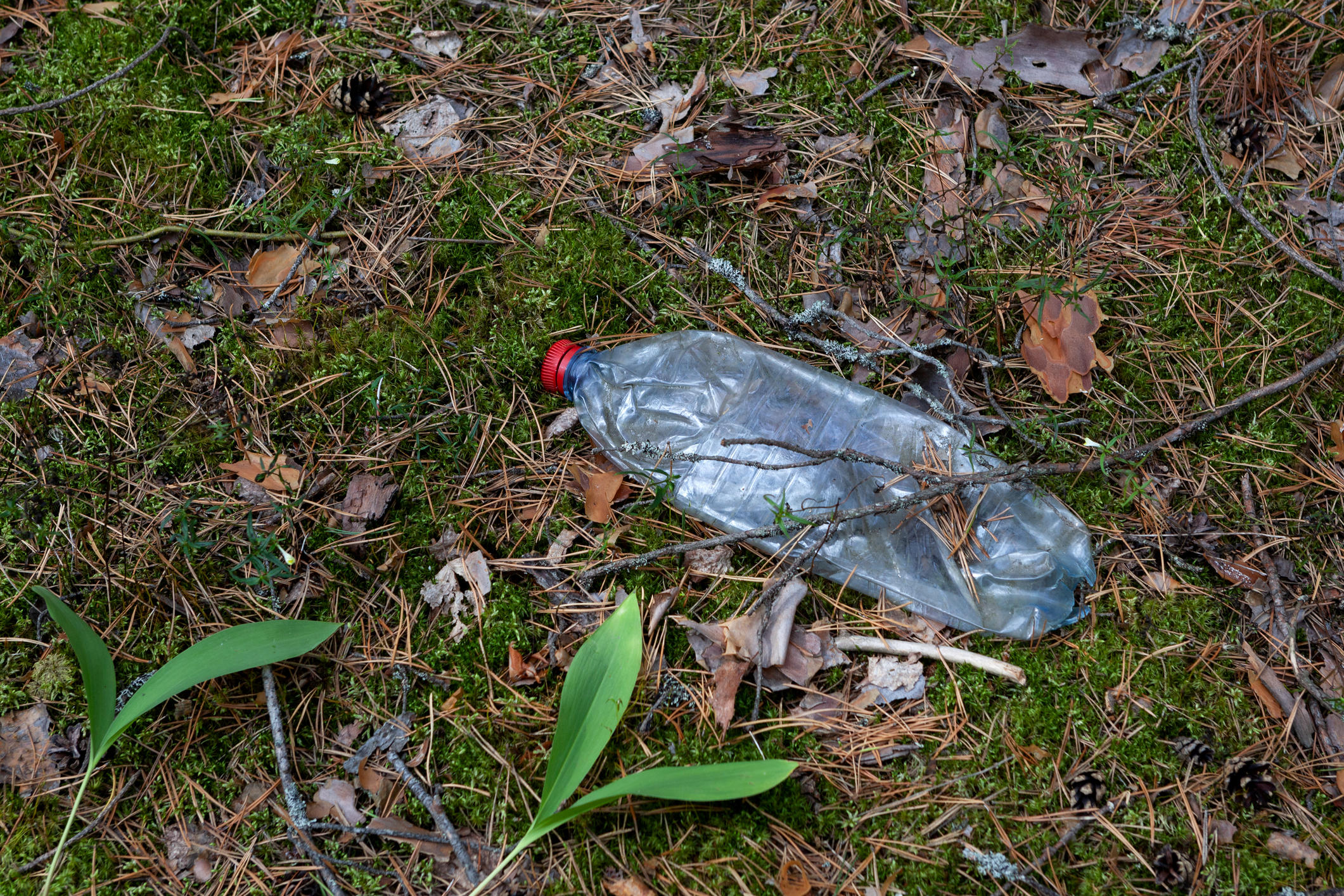What is Biodegradation?
In the process of biodegradation, microorganisms are responsible for breaking down organic matter. This can take place over a varying amount of time — anywhere from days to centuries. Products made from natural sources are generally able to be broken down more quickly than synthetic, or man-made products, making them preferable.
Biodegradation is an extremely important process. It minimizes the negative effects of products on the environment. Unfortunately, many products cannot biodegrade, and remain in the ecosystem for centuries.
Plastic Water Bottle Degradation in Soil
Plastic water bottles that you buy for when you are on the run, for sporting events or parties are generally made of a plastic called polyethylene terephthalate, or PET. While this plastic is lightweight and flexible it is extremely hard to biodegrade. The microorganisms in the soil are not capable of breaking down the chemicals in PET plastics, meaning it takes centuries for the material to degrade.
Unfortunately, it is estimated that it takes plastic water bottles approximately 450 years to break down. However, this does not mean that the plastic is removed from the environment. These water bottles will just erode into smaller and smaller pieces of plastic, eventually becoming undetectable microplastics. Even though these pieces may not be able to be seen, they remain in the soil and remain a danger to the ecosystem.
Toothbrush Degradation in Soil
When you think of your standard toothbrush, you are probably envisioning a colorful plastic handle with some bristles. These toothbrushes are generally made out of polypropylene (PP) or polyethylene (PE) with nylon bristles. Nylon and PE don’t take too terribly long to biodegrade compared to other persistent plastics, but it is still decades and generally takes 20 to 40 years. However, PE takes significantly longer — anywhere from 500 to 700 years.
There are some other toothbrush options that are becoming more popular, such as bamboo toothbrushes. Since these options are largely made of natural materials, they will break down in soil in just a few years.
Tissue Box Degradation in Soil
Most tissue boxes are made from cardboard, which is fairly easy to break down in the soil. Since cardboard is created from wood pulp, it is easy for microorganisms to biodegrade. Cardboard can biodegrade in two to five months.
Cardboard tissue boxes can also be added to your at-home compost pile. The material is rich in carbon, which is great for balancing compost piles. Plus, it will take about two months for the material to break down in a composting environment.
So, What Does This Mean?
There is a common pattern in that organic materials, or products made from organic materials, biodegrade much easier than synthetic materials. These products may remain in the environment for decades or centuries, causing harm to the ecosystem in doing so. And of course, just because something can biodegrade does not mean that it should be tossed out into your yard.
As consumers are becoming more conscious of the negative effects of plastics and materials that do not easily biodegrade, companies are starting to focus on the biodegradability of their own packaging and products as an alternative end-of-life scenario. Many businesses have made the switch to more eco-friendly packaging products, such as compostable takeout boxes for food. Additionally, more companies have started to get the biodegradability of their packaging tested to determine if the materials are in fact biodegradable for different environmental conditions. Ultimately, these concerns will lead to less and less plastic ending up in the soil, meaning a healthier ecosystem.
Explore Aropha’s Biodegradability Testing for Degradation in Soil, Landfill, and Marine Environments
At Aropha, our goal is to offer high-quality, reliable biodegradability testing that won’t break the bank. We have experience testing numerous materials in many environments, including soil, landfill, compost, and seawater environments. Our team offers traditional in-lab testing and biodegradability predictions with our ArophaAI machine learning program.
If you are working on making your materials biodegradable and are interested in learning how we can help, contact our team today.

